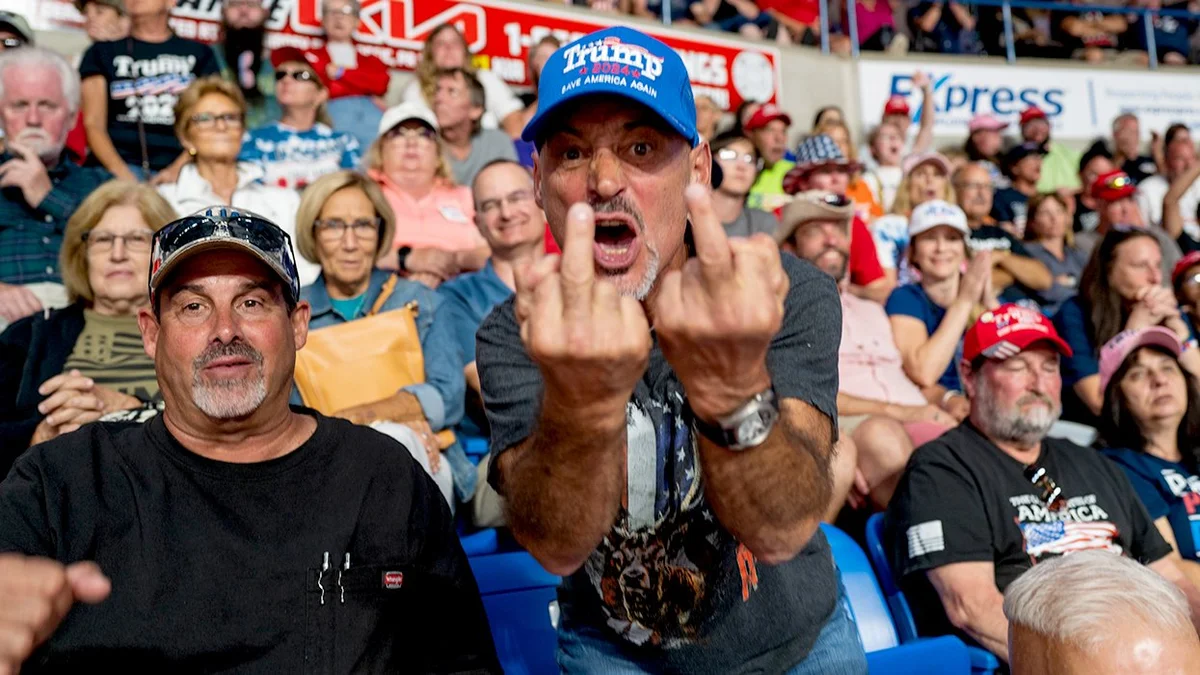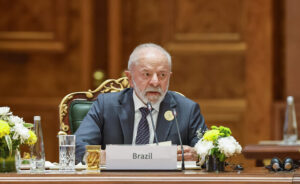
Published 10/23/2024 11:23 | Edited 10/23/2024 11:57
The agency Reuters published, this Monday (21), a report by journalists Ned Parker and Peter Eisler revealing that the USA is experiencing the highest rate of political violence since 1970, with 300 cases of attacks related to politics since 2021.
Some of the episodes of violence were widely publicized, mainly two assassination attempts against Donald Trump. Other high-profile incidents include three shootings in recent weeks targeting a Kamala Harris campaign office in Arizona.
Experts warn that the charged atmosphere surrounding the 2024 presidential election has created a highly volatile situation. Trump, in particular, frequently uses incendiary rhetoric, threatening to sue his political enemies and mobilize the military against the “radical left,” calling them “the enemy within.”
Americans are starting to see violence as “part of the way politics happens,” said Nealin Parker, who leads Common Ground USA, a nonprofit that studies ways to bridge America’s political and cultural divisions. In the current climate of distrust, she added, “incidents of violence can degenerate into something larger.”
Robert Pape, a University of Chicago professor who studies political violence, expressed concern about the possibility of post-election violence in swing states, where the margin of victory could be a few thousand votes. He likened the situation to a “wildfire season,” with lots of “dry, combustible material” and the “potential for lightning.”
Trump himself has refused to rule out the possibility of violence if he loses in November. When asked by the magazine Time in April violence was expected after the election, he said: “If we don’t win, you know, it depends.” He told supporters that any defeat in this year’s election would be due to fraud.
The most notorious case of political violence recently was the first assassination attempt on Trump during a campaign rally on July 13 in Pennsylvania. The shooter, Thomas Crooks, was killed at the scene. He had “no definitive ideology,” federal investigators concluded.
On September 15, a second assassination attempt on Trump once again drew attention to the risk of political violence in this year’s election. The suspect, Ryan Routh, waited for hours with an assault rifle near Trump’s golf course in West Palm Beach when an agent spotted him in the vegetation and fired. Routh fled but was quickly captured.
Eleven days later, in the crucial state of Pennsylvania, Alan Vandersloot, a 74-year-old local councilman, stood with a sign of Kamala Harris among about a dozen of his supporters at a rally in York, a city of nearly 45,000 in a county who mostly supported Trump in 2020.
As the rally was ending, Vandersloot told the Reuters that a man grabbed him from behind and threw him to the ground, opening a two-inch gash on his forehead. The attacker, Robert Trotta, punched Vandersloot several times before fleeing, according to two witnesses in interviews.
When another rally attendee, Dan Almoney, ran after Trotta, he called him a “black supporter,” Almoney said.
Trotta, unable to post bail, has yet to enter a plea to the assault and harassment charges, court records show. Trotta’s attorney declined to comment. Trotta is a registered Republican, according to state records. His social media posts, from an account last active in 2020, supported Trump and criticized Democrats.
A spokesman for the York City Police Department, Captain Daniel Lentz, said he did not believe Trotta’s attack was “politically motivated” as Trotta had previously pleaded guilty to two harassment cases in which he assaulted random people. . However, the police report did not include statements from Vandersloot and Almoney, detailing the assaults, racist offenses and stating that they believed the attack was political. When questioned, Captain Lentz said he did not know why the police did not record the statements.
On September 26, a Michigan man was arrested for assaulting a U.S. Postal Service employee who delivered a Harris campaign flyer to his home. The postal worker was in her truck when 61-year-old Russell Valleau approached on his bicycle, shouting that he “Didn’t want that ‘black bitch’ in your mailbox“, according to police records and a statement from the Oakland County Prosecutor.
When the postal worker, who is black, told Valleau to step aside, he called her a “black bitch” and advanced on her with a knife, according to her report to the Farmington Hills Police Department. She sprayed him with dog repellent, and he backed away. “I just had a man come up to me with a knife and try to stab me,” she said moments later in a call to police.
In another case this summer, four white men in a pickup truck arrived at a rural home in coastal North Carolina and asked three black teenagers in the backyard “if they liked Donald Trump,” according to a Sheriff’s Office report. of Pasquotank County. When the young men said “no”, the men opened fire with a BB gun, hitting one young man in the leg and another in the buttocks. The shots also broke windows of the house, a shed and a car in front.
The truck drove away. Police are investigating the case as assault with a deadly weapon and have no suspects. The children suffered minor injuries.
No one knows what the outcome of the fierce dispute between Kamala Harris and Donald Trump will be, but whoever wins, November 5th and the following days will be very tense, with the possibility of isolated or even widespread clashes, if Trump loses.
__
Source: Reuters
(BL)
Source: vermelho.org.br

